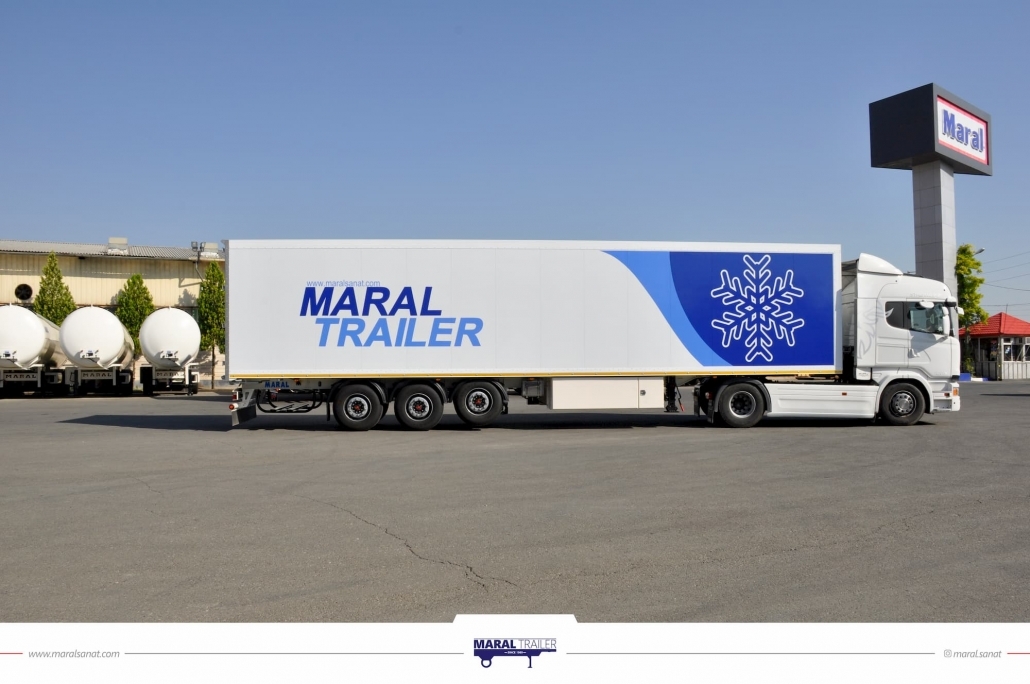A 3-axle refrigerated semi-trailer is a specialized vehicle designed for the safe transport of temperature-sensitive goods.
Refrigerated Trailer: The Ultimate Solution for Perishable Goods Transportation
A refrigerated trailer plays a critical role in the road freight industry, particularly in the food and pharmaceutical sectors. Equipped with advanced cooling systems, these trailers allow the safe transport of temperature-sensitive goods—preventing spoilage and maintaining product quality throughout the journey. From fresh fruits and vegetables to dairy products, meat, and temperature-sensitive medicines, a refrigerated trailer is essential for preserving quality during transit.
What Is a Refrigerated Trailer and How Does It Work?
Also known as a reefer trailer or cold storage trailer, a refrigerated trailer is equipped with high-performance insulation and a powerful refrigeration unit. This system maintains a consistent temperature inside the cargo area, ranging from below freezing to above zero as required. Insulated walls, roof, and flooring prevent heat exchange, helping the cooling unit maintain the desired temperature efficiently while reducing energy consumption.
Where Are Refrigerated Trailers Used?
- Food Industry: Transporting meat, poultry, seafood, fresh produce, dairy products, ice cream, and frozen goods.
- Pharmaceutical Industry: Shipping vaccines, serums, temperature-sensitive medicines, and chemicals.
- Floriculture: Delivering fresh-cut flowers and ornamental plants that require controlled temperature and humidity.
For goods that do not require temperature control, a curtain side trailer can be a more cost-effective alternative.
Key Benefits of Refrigerated Trailers
- Preserves Product Quality & Freshness: Maintains optimal conditions to prevent spoilage—crucial for long-distance exports and imports.
- Reduces Waste: Proper temperature control minimizes losses and improves profitability.
- Complies with Health Standards: Enables strict hygiene and safety standards required for food and pharmaceutical transportation.
- Adjustable Temperature Range: Modern systems allow precise temperature settings for different cargo types.
Essential Factors to Consider Before Buying a Refrigerated Trailer
- Insulation Quality: Ensure high-density polyurethane foam insulation to prevent heat transfer.
- Body and Chassis Material: Fiberglass or high-quality sandwich panels with a corrosion-resistant steel chassis are ideal.
- Monitoring Systems: Opt for trailers with data loggers and temperature monitoring for full control during transit.
- Price and Warranty: Verify the warranty coverage for both the refrigeration unit and the trailer body.
Conclusion: A Smart Investment for Your Business
Investing in a high-quality refrigerated trailer guarantees product safety and protects your brand’s reputation. Maral Sanat Javid offers a wide range of refrigerated trailers designed to meet diverse logistics needs. Our expert team is ready to assist you in selecting the perfect model tailored to your requirements.





